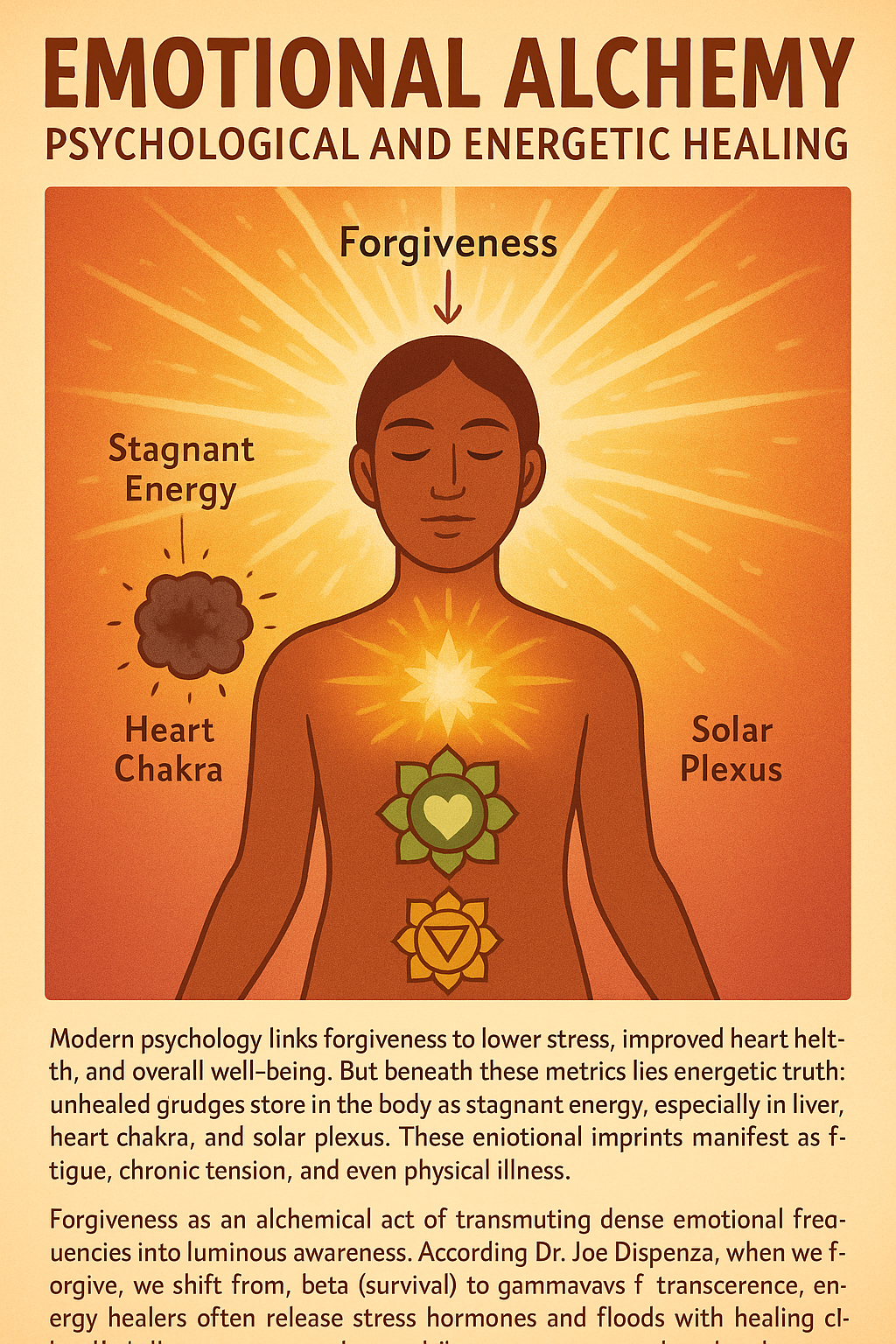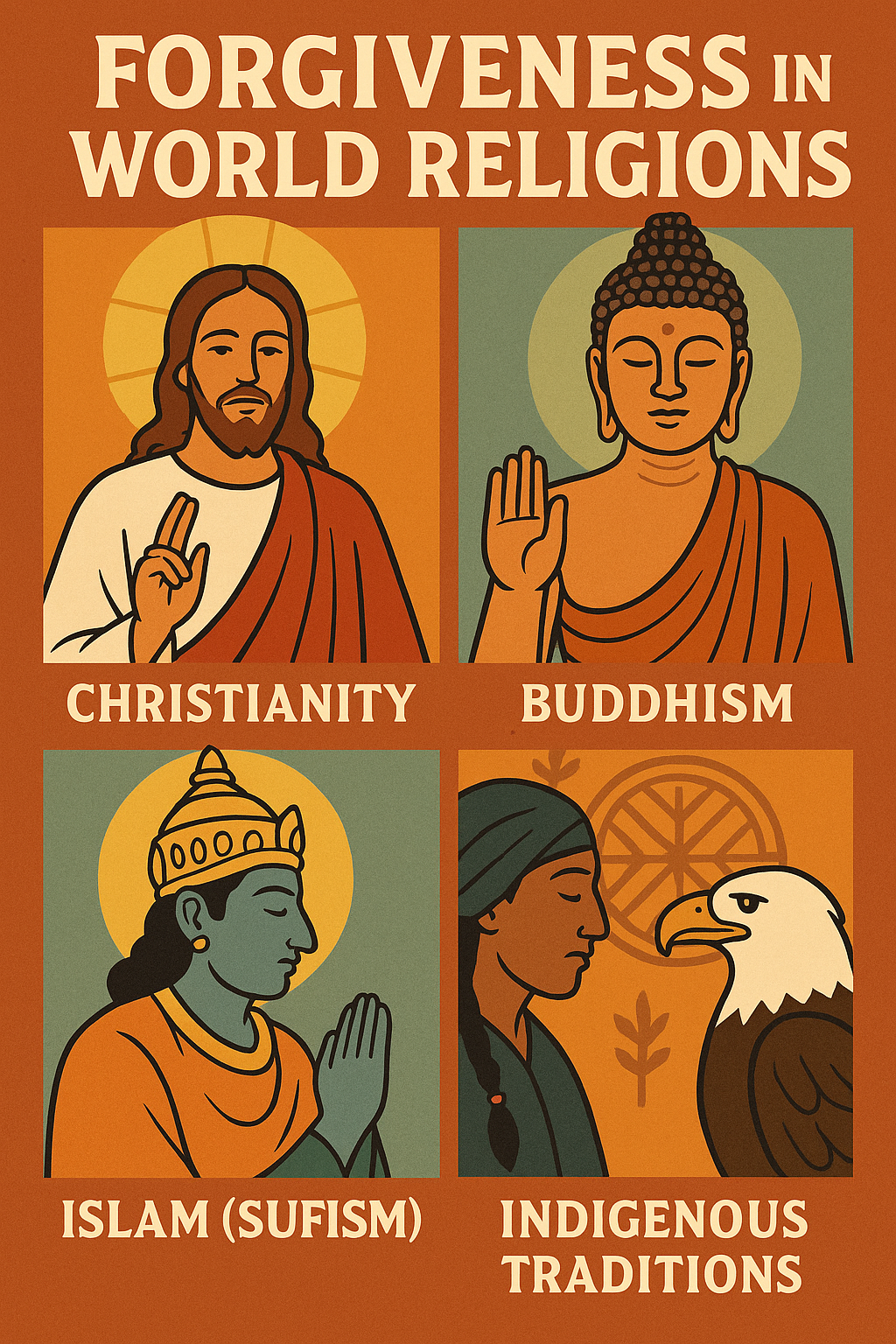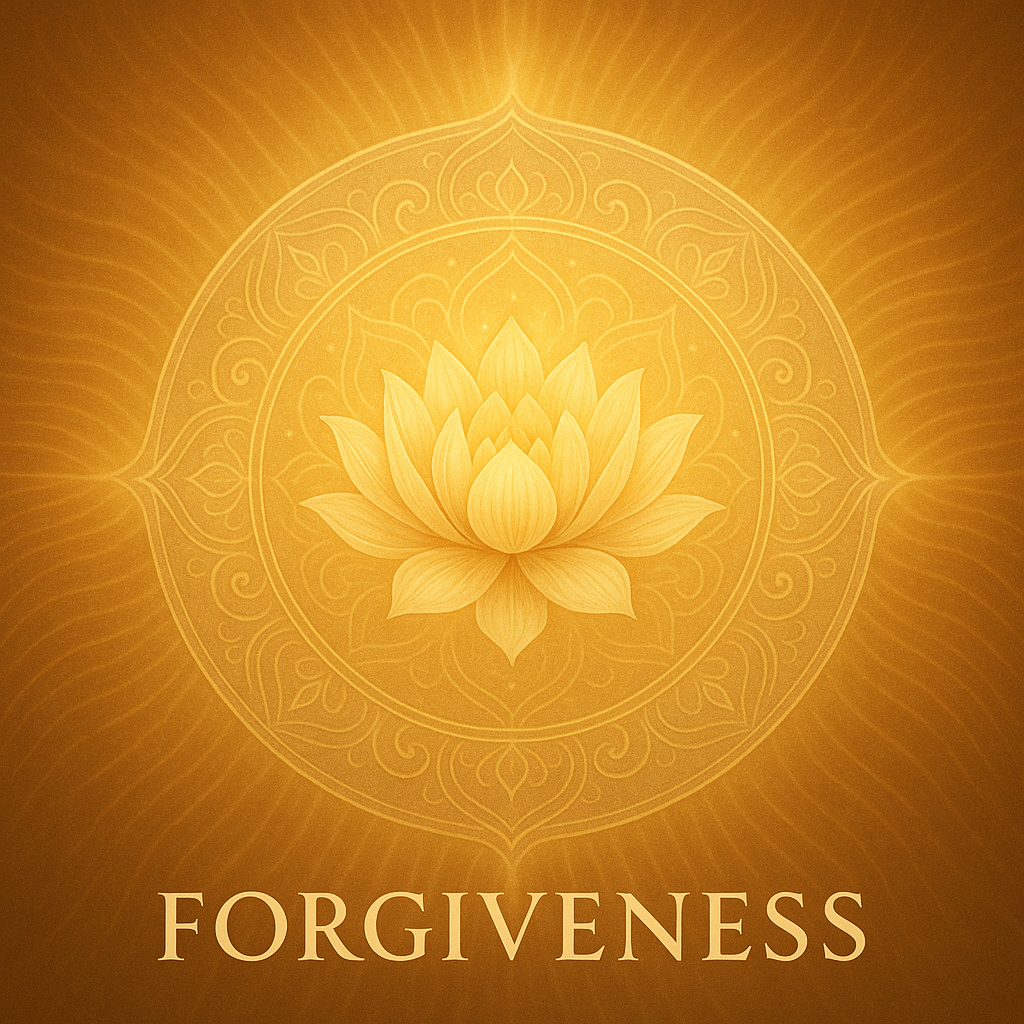1. Theosophy & Forgiveness: A Karmic Perspective
In Theosophy, forgiveness is more than a moral virtue—it’s an act of soul liberation. Every act of harm or resentment becomes a karmic thread in the great tapestry of our lifetimes. Forgiveness cuts through these threads, not by erasing karma, but by transforming it into conscious growth. When we forgive, we break cycles of reincarnational echo and move closer to the mastery of the causal body.
As stated by Helena Blavatsky, karma is not retribution but a teacher. To forgive is to say, “I choose to learn the lesson now, not carry it into the next life.” Forgiveness does not mean forgetting; it means recognizing the lesson behind the pain and releasing the other soul from emotional bondage.
2. Emotional Alchemy: Psychological and Energetic Healing

Modern psychology links forgiveness to lower stress, improved heart health, and overall well-being. But beneath these metrics lies an energetic truth: unhealed grudges store in the body as stagnant energy, especially in the liver, heart chakra, and solar plexus. These emotional imprints manifest as fatigue, chronic tension, and even physical illness.
Forgiveness is an alchemical act of transmuting dense emotional frequencies into luminous awareness. According to Dr. Joe Dispenza, when we forgive, we shift from the beta brainwave of survival to gamma waves of transcendence. The body releases stress hormones and floods with healing chemicals like serotonin and oxytocin. Energy healers often describe a client finally forgiving someone as a “light explosion” in their auric field.
3. Forgiveness in World Religions

Forgiveness is a sacred pillar across spiritual traditions. In Christianity, Jesus emphasized forgiveness seventy times seven—signifying limitless grace. In Buddhism, forgiveness purifies the heart and dissolves karmic chains. The Metta Bhavana meditation teaches compassion even for one’s enemies.
Hinduism speaks of “Kshama” as a divine quality of the awakened soul. Sufism, the mystical branch of Islam, teaches that to forgive is to reflect the mercy of Allah. Even in indigenous traditions, forgiveness is part of reconciliation ceremonies, acknowledging the soul contract between offender and victim before birth.
Thus, across the Earth’s wisdom streams, forgiveness is never weakness—it is divine strength in action.
4. Philosophical Dimensions of Forgiveness
Forgiveness challenges the ego’s belief in justice and retribution. In the words of Friedrich Nietzsche, “He who cannot forgive breaks the bridge over which he himself must pass.” Philosophically, forgiveness requires acknowledging that identity is not fixed. If the self is fluid, so too must our grievances be.
In existentialism, forgiveness is a radical act of freedom—it declares that I am no longer bound to the past. Simone Weil called this “mystical detachment,” a way of dissolving the egoic claim over pain. Forgiveness, then, is not to condone, but to transcend. It is to rise above duality and reframe reality through the eyes of the soul.
5. Spiritual Practices: Forgiveness as Sacred Ritual
Forgiveness is not a feeling—it is a practice. And like all spiritual practices, it can be ritualized. Here are several powerful techniques:
- Ho’oponopono: A Hawaiian mantra meaning “I’m sorry, Please forgive me, Thank you, I love you.” This clears ancestral and energetic debts.
- Fire Ceremony: Write the person’s name and grievances on paper. Burn it with intention to release karma.
- Guided Visualization: Visualize a cord connecting you and the offender. Cut the cord with light and say: “I release you to your own journey.”
- Heart Chakra Meditation: Sit in green light and breathe forgiveness into the heart, expanding with each breath.
These practices align intention with spirit, opening a portal to inner alchemy.
6. Soul Contracts and Past Life Reconciliation
Many of our deepest hurts come from souls we’ve encountered before. Michael Newton and Brian Weiss documented countless cases where trauma stems from prior incarnations.
In this view, forgiveness becomes sacred recognition: “We agreed to this before we were born.” The parent who betrayed, the lover who abandoned, the friend who deceived—all may have played their part in your soul’s unfolding.
Forgiveness here is remembering. It’s gratitude for the soul growth bought through pain. And as you release, you free not just yourself—but often, them too. The karmic drama ends, and liberation begins.
7. The Universal Light of Forgiveness
Ultimately, forgiveness is cosmic. It is the light of the Christos-Sophia, the radiant intelligence that reconciles opposites. It is the balm of Avalokiteshvara, the tears of Tara, the grace of Divine Mother in all forms.
Forgiveness heals timelines. It repairs the subtle web of life, restores trust in the divine plan, and lifts us toward ascension. The forgiven becomes the forgiver, the wound becomes the womb of rebirth. Forgiveness is not just the end of suffering—it is the rebirth of love.
May this journey guide you into the radiant peace that forgiveness offers—not just as an act, but as a way of being.
